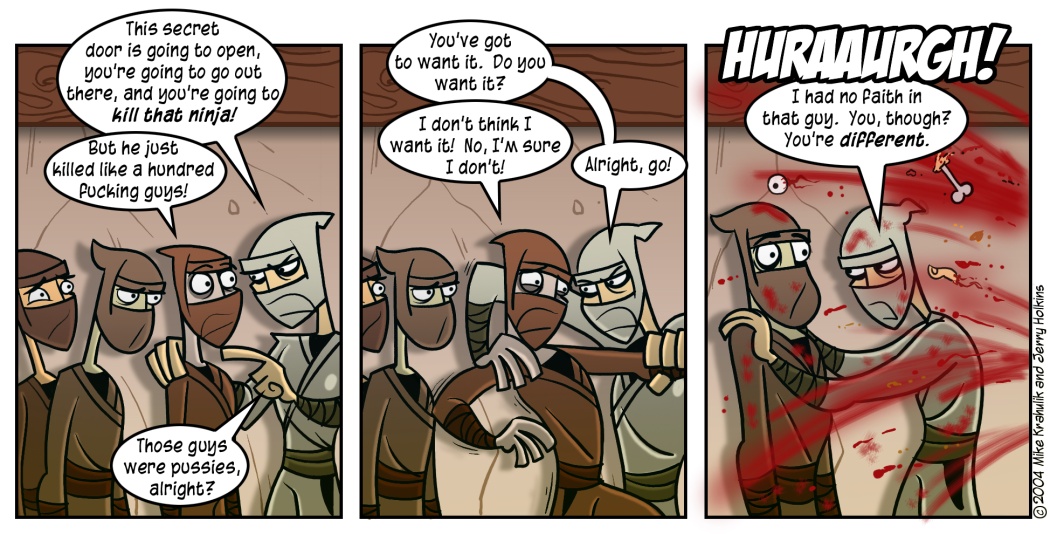When things are at their darkest, simply close your eyes and invoke the transformative power of commerce.
The Xbox has plenty of games that look good, and it ought to, given the vigor of its components: but I don't think there's another game for the system that looks as good as Splinter Cell: Chaos Theory.
I like the game too, but you know what you're in for with a Splinter Cell - sneakin', snappin', unbelievably bad "foreign" accents, etc. It isn't the only piece of software out there to utilize technology which yelps "Hey! This is what light is doing on this surface," but I feel comfortable saying that it's never been used more artfully. It's like eighteen dollars now, if your little heart is set on proving me wrong or something. You wont.
The "adversarial" multiplayer mode was a retooled version of Pandora Tomorrow's, with some new tech and considerably more elaborate maps that didn't quite stick the way the first one did. It may be that the people I know had moved on to a new type of experience by then, but getting competitive at a Splinter Cell map is a frightfully comprehensive procedure that allows no half-measures. Also, losing in Splinter Cell is really the most emasculating sensation. Short of the medical procedure, I suppose.
Along with a hardcore online experience that was probably too hardcore for ninety-five percent of players, they included another game altogether - where the adversarial still ran on the old technology, the new co-op mode used the sparkling new engine that underpinned Chaos Theory itself. Filled with two-player gaming experiments and novel action setpieces, it's the main thing I took away from Chaos Theory as a package. This is Splinter Cell, for fuck's sake - it's an international powerhouse brand that doesn't need market inducements aside from a lengthy single player campaign and a new kind of multiplayer. So, why did they do it? I've never played anything like it. It's the sort of thing we imagine doesn't happen in gaming anymore.
Maybe it doesn't, actually. From the Game Informer article that broke the story on Splinter Cell: Double Agent, it looks like cooperative multiplayer with its own campaign parallel to the main story is a mutation that couldn't survive in the wild. A facsimile of the experience will be available against "bots," essentially as a training mode for their rebuilt multiplayer that they hope will make the process less intimidating for new players. It's probably the right choice, but the sensation that they were developing exclusively for me was intoxicating.
(CW)TB
December 28, 2005
